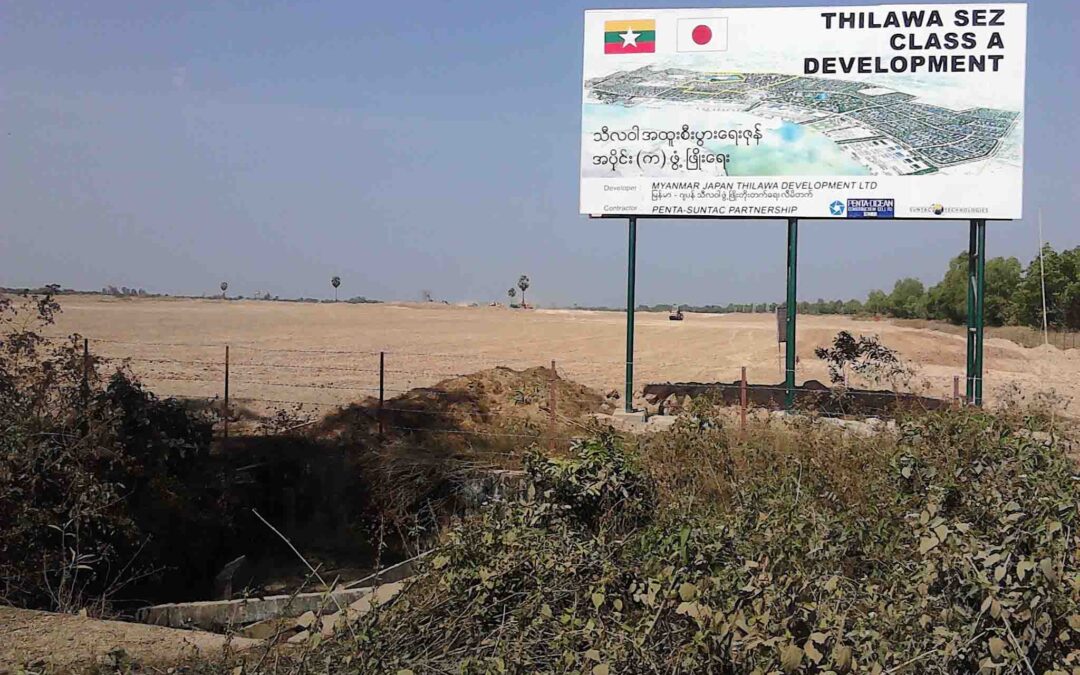
Nov 30, 2017 | News
The ICJ addressed representatives of over 400 civil society organizations from all 14 states and regions of Myanmar at the MATA Forum held in the township of Pyin Oo Lwin, close to Mandalay.
Hosted from 28 to 30 November by the Myanmar Alliance for Transparency and Accountability (MATA), the Forum featured seminars and discussions on the ‘The Role of Civil Society Organizations related to Democracy, Federalism, Human Rights and Natural Resource Governance.’
MATA facilitated presentations and discussions by a range of actors on these topics – including by Sean Bain, an International Legal Adviser from the ICJ.
The ICJ’s presentation began with a reflection about key legal concepts, noting the differences between ‘rule by law’ and ‘rule of law’ as understood in the Myanmar context.
MATA members helped facilitate discussion on the application of law in Myanmar, and on key rule of law principles of democracy, human rights, accountability, transparency and justice.
Participants in the Forum were presented with an overview of Myanmar’s laws governing land and investment, assessed in relation to the State’s international legal obligations to respect and to protect human rights.
In particular, Myanmar ratified the International Covenant on Economic, Social and Cultural Rights in October 2017 and its obligations under this treaty will enter into force on 6 January 2018.
It was noted that many national laws – including a proposed new Land Acquisition Bill – fall short on fulfilling the State’s international human rights law obligations.
There was also discussion about how applying the principle of non-discrimination in law and practice is critical for Myanmar’s NLD-led government to meet its international obligations and fulfill its stated commitment to rule of law.
Historical examples were given of legal regimes in South Africa and Australia that legalized discriminatory practices of apartheid and the dehumanization of indigenous peoples. The law must no longer be used in Myanmar as a justification for discrimination.
The ICJ’s involvement in this Forum is part of ongoing engagement with civil society groups in Myanmar.
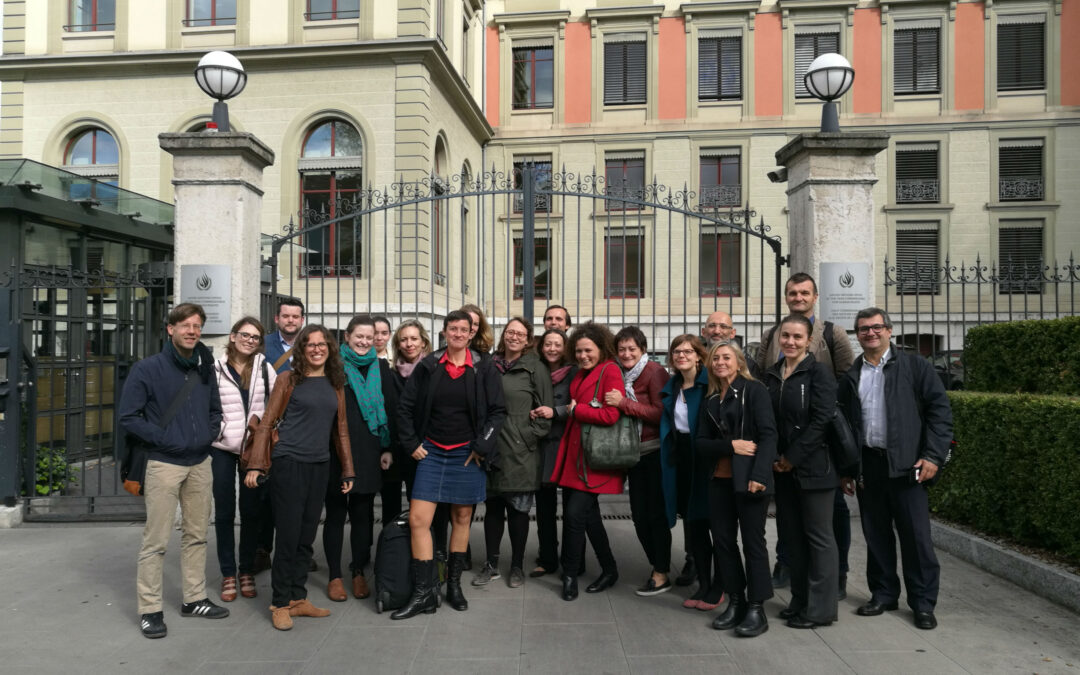
Oct 4, 2017 | Agendas, Events, News
Today starts a five-day Strategic Litigation Retreat for lawyers in Ferney-Voltaire, France organized by the ICJ-EI as part of the EU and OSI funded FAIR project.
Twenty lawyers from Bulgaria, Germany, Greece, Italy, Ireland, Malta and Spain will be meeting with experts and among themselves in order to strategize about their cases of access to justice for migrant children and on accessing international human rights mechanisms.
The retreat is taking place from 4 to 8 October in a close proximity to Geneva, which allows for access to UN treaty bodies experts.
The group will meet with Members of the UN Committee on the rights of the child and the UN Committee on Economic, Social and Cultural Rights and experts from the treaty bodies’ secretariat on individual complaints and on inquiries.
The participants will also have a chance to discuss litigation strategies with experts from the European Court for Human Rights, experts from civil society organizations with long-standing experience in strategic litigation, such as the AIRE Center, ICJ, DCI Belgium or Child Rights Connect.
All the participating lawyers took part in the national trainings organized, through 2016 and 2017, by the ICJ and its national partners.
The trainings were focused on the right to be heard and procedural rights of migrant children, the right to family life, economic, social and cultural rights, detention and on how to access international human rights mechanisms in order to allow for effective access to justice for migrant children.
Out of all the participants, this Strategic Litigation Retreat, brings together three selected lawyers from each of the national trainings.
In the same time, the project management group of the FAIR project, composed of national partners and Child Rights Connect will meet and will contribute to some parts of the Retreat.
The Retreat will use as a basis the draft training materials prepared by the ICJ (to be published an the end of 2017) and the ICJ Practitioners Guide no. 6: Migration and International Human Rights Law.
The FAIR project co-funded by the Rights, Equality and Citizenship Programme of the European Union and OSIFE.
See more information about the national trainings on the rights of migrant children within the FAIR project here: Spain, Italy, Bulgaria, Malta, Greece, Ireland, Germany (photo)
Download the agenda here: Universal-StrategicLitigationRetreat-News-Events-Agendas-2017-ENG
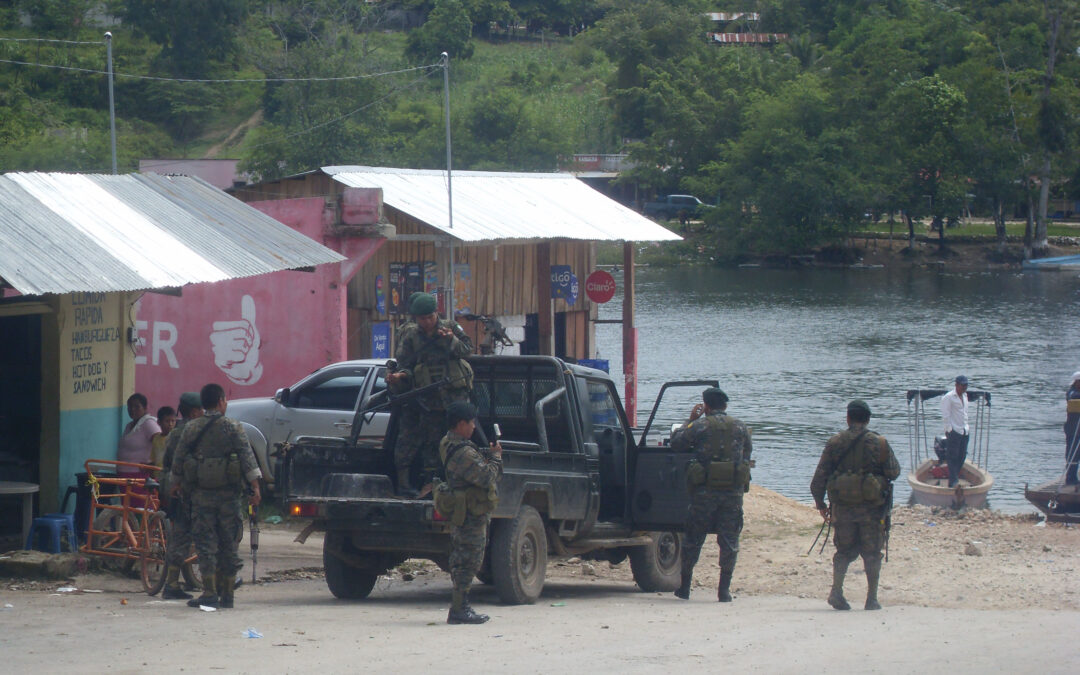
Jun 5, 2017 | News
La CIJ espresa su más honda preocupación por los desalojos forzosos de las comunidasdes de Laguna Larga y la Mestiza, del Departamento de El Petén.
El pasado viernes 2 de junio, el Gobierno de Guatemala llevó a cabo un operativo militar en el Departamento de El Petén de desalojo forzoso de la comunidad Laguna Larga, situada en Laguna del Tigre en el municipio de San Andres, y tiene programado llevar a cabo otro de la comunidad La Mestiza, del mismo municipio, para el 14 de junio.
Como consecuencia de este operativo militar, la comunidad de Laguna Larga – alrededor de 600 o 700 personas, incluidos niños, mujeres y ancianos- decidió desplazarse en condiciones deplorables hacia territorio mexicano, en búsqueda de refugio y protección.
El sábado 3 de junio los miembros de la comunidad de Laguna Larga cruzaron la frontera y se encuentran actualmente en el municipio de La Candelaria, Campeche, México, en condiciones sumamente adversas. Varios niños y niñas muestran signos de enfermedades respiratorias.
Preocupa particularmente a la CIJ la situación física y mental de un niño que fuera perseguido por las fuerzas militares, durante el operativo de desalojo.
En repetidas ocasiones, la CIJ ha expresado que las comunidades que viven en los municipios de San Andrés y La Libertad en el departamento de El Petén, siguen enfrentando la exclusión sistemática por parte de las instituciones del Estado, así como violaciones graves a los derechos humanos, en particular violaciones a los derechos económicos, sociales y culturales.
Por el hecho de vivir en una zona protegida de conformidad con la Ley de Áreas Protegidas, el Estado guatemalteco considera a estas poblaciones como “ilegales” y las acusa de cometer el delito de “usurpación” de áreas protegidas, prohibiendo el ingreso de materiales de construcción, herramientas o cualquier bien que pueda garantizar o significar la más mínima “permanencia” en dichas comunidades o en la zona.
Recientemente fue detenido arbitrariamente el señor Jovel Tovar, acusado del delito de usurpación de áreas protegidas, quien se encuentra detenido en la cárcel de San Benito, en el Departamento de El Petén.
Paradójicamente, el Estado guatemalteco permite y facilita la explotación petrolera en dicha zona, de la compañía PERENCO, a pesar de que los derrames petroleros y otras actividades relacionadas con esa actividad, producen un serio deterioro a las reservas de agua dulce, las cuales son las más importantes de Mesoamérica.
La CIJ considera que esta política afecta seriamente los derechos de la población asentada en la zona.
En repetidas ocasiones, la CIJ ha podido observar que el Ejército de Guatemala, conjuntamente con la Comisión Nacional de Áreas Protegidas (CONAP), implementa operativos por medio de los cuales se lleva a cabo un acoso permanente a las comunidades que viven en las zonas protegidas.
La presencia del Ejército de Guatemala en la zona y la existencia de diferentes “retenes” militares son parte de la estrategia de acoso permanente a las poblaciones asentadas en la región, las cuales llegaron allí en el marco de un programa estatal en los años setenta, antes de la declaración de zona protegida.
Según la Constitución Política de la República de Guatemala, el Estado se organiza para proteger a la persona y no para perseguirla.
El acoso permanente a las comunidades, así como las políticas de Estado contra las personas que viven en las zonas protegidas, estableciendo “cercos de presión psicológica, material y militar”, constituye una política de Estado que contradice la Constitución Política de Guatemala, así como convenios y tratados en materia de derechos humanos – especialmente el Pacto Internacional de Derechos Económicos, Sociales y Culturales (PIDESC) de las Naciones Unidas-, que imponen la obligación al Estado de garantizar los derechos económicos, sociales y culturales y que toda persona disfrute del más alto nivel posible de salud física y mental.
Ramón Cadena, Director de la CIJ para Centro América expresó: “Esta política del Estado de Guatemala de desalojar a las comunidades de cualquier región del país en forma violenta, contraviene el Derecho Internacional de los Derechos Humanos y los estándares internacionales y el Estado de Guatemala debe ser declarado responsable y reparar los daños y perjuicios causados.”
Para mayor información:
Ramón Cadena, director CIJ C.A. al correo ramon.cadena(a)icj.org o a los telefonos +502 23601919; +502 23610538.
Leer más aqui:
Guatemala-Desalojo Peten-News-2017-SPA (en PDF)
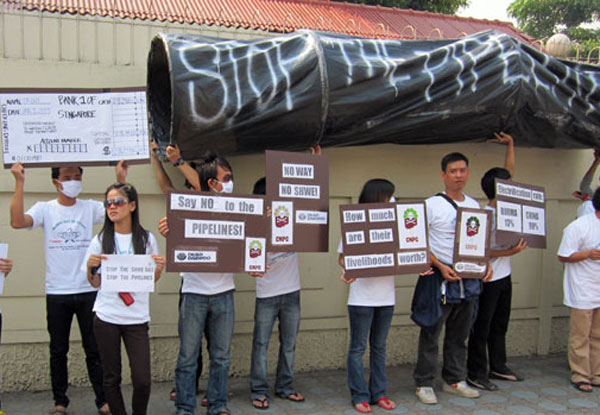
May 30, 2017 | News, Op-eds
An opinion piece by Sean Bain, ICJ legal consultant in Myanmar, and Vicky Bowman, Director of the Myanmar Centre for Responsible Business.
A strategic environmental assessment is needed to enable sustainable development and the fulfilment of human rights for the people of Kyaukphyu, the site of a planned SEZ and deep-sea port.
In its interim report released in March, the Advisory Commission on Rakhine State chaired by former United Nations secretary-general Kofi Annan, called for a comprehensive assessment of the special economic zone in Kyaukphyu Township.
The aim would be to “explore how the SEZ may affect local communities and map how other economic sectors in the state may benefit (or possibly suffer) from the SEZ”.
The State Counsellor’s Office endorsed the commission’s interim recommendations, including for this assessment.
The call for a comprehensive assessment in Kyaukphyu echoes a proposal from our organisations, the Myanmar Centre for Responsible Business and the International Commission of Jurists, for the government to undertake a strategic environmental assessment.
Its purpose would be to address concerns about human rights and to consider the cumulative environmental and social impacts of planned developments. Oxfam has put forward a similar recommendation to the government.
Our recommendation comes as media reports this month suggest that the government is giving renewed attention to the future of the SEZ and related projects in Kyaukphyu.
The SEZ, which has been planned to include industrial parks along with deep-sea ports and transport links to China, would transform the demographic and economic character of Rakhine State’s central coast and hinterlands.
It would have significant impacts for local communities and the state economy, both during and beyond the envisaged 20-year construction period.
Kyaukphyu – already the starting point for oil and gas pipelines to China – would host the largest development project ever undertaken in Rakhine State.
Financed mostly by Chinese investors, with shipping facilities linking Myanmar to international routes through the Bay of Bengal, the project also has national and regional economic significance.
However, to date there has been insufficient consideration of the impacts, either positive or negative, on the livelihoods and human rights of residents and the economy of Rakhine State.
Plans for the SEZ are ambitious yet detailed information is scarce and so far there has been no genuine public participation in planning processes.
While contracts and payments regarding investments are decided in Myanmar’s economic and political capitals, it is at the local level that negative impacts can be felt the most.
It is also at the local level where economic benefits may be enhanced.
To address negative impacts and enable benefits, a joined-up approach that brings together national and local government and local and foreign companies with the people of the area is needed.
At present, a lack of coordination across ministries, and between national and regional governments is limiting the scope to harness opportunities and manage impacts of investments.
Despite their significance, neither the SEZ and deep-sea ports nor the offshore gas projects serviced from Kyaukphyu are included in Rakhine State’s socioeconomic development plan.
We believe a strategic environmental assessment is needed to enable sustainable development and the fulfilment of human rights in the Kyaukphyu area.
Strategic environmental assessments, which are part of Myanmar law, are defined in the 2015 Environmental Impact Procedure as “a range of analytical and participatory approaches that aim to integrate environment into policies, plans and programs and evaluate the inter-linkages with economic and social considerations.
The principle is to integrate environment, alongside economic and social concerns, into a holistic sustainability assessment.”
Unlike an environmental impact assessment, which is a permitting requirement for individual projects, a strategic environmental assessment takes a holistic approach by integrating environmental and social concerns and human rights protection, to produce a big picture view of the impacts of interrelated projects.
At Kyaukphyu, the national and state governments – drawing on financial and technical assistance from development and human rights partners – could commission expert independent consultants to undertake the necessary studies and analysis to produce such an assessment.
The assessment would consider the cumulative human rights and environmental impacts of the SEZ, seaports, pipelines, offshore gas developments and transport and energy infrastructure, including impacts on traditional fishing and farming livelihoods in Kyaukphyu.
It could address how best to avoid or minimise the physical and economic displacement of residents, and how to reduce the potential for local tensions and conflict associated with expected socioeconomic transformations.
A legal framework – based on international law and standards – for protecting human rights during economic displacement and resettlement needs to be put in place. That’s not just for the SEZs, but for all projects.
While insufficient to address the lack of legal accountability in the SEZ Law and the limited access to justice in Myanmar, a strategic environmental assessment could improve transparency and give voice to the views of local communities, businesses, civil society organisations and other stakeholders.
This would help fill major gaps in planning and decision-making processes thus far.
Consultation is critical to the value and legitimacy of any assessment but too often it is tokenistic or minimised to cut costs and time.
Development partners should ensure that they are funding genuine and extensive public participation.
A lesson from Myanmar’s only other assessment of this kind, currently underway with support from the International Finance Corporation focused on the hydropower sector, has been the need to communicate and engage constantly about the purpose and process of the assessment.
Many civil society groups chose not to participate in consultations for the IFC-backed assessment due to scepticism and lack of confidence in the process.
To learn from this experience, international and local NGOs in Kyaukphyu could share information and support communities to make informed decisions about their engagement with a strategic environmental assessment.
Until there is a concrete and transparent plan to manage impacts from development projects in Kyaukphyu, particularly those with negative impacts on human rights, current preparations for the SEZ should be put on hold.
This includes land acquisition that is underway and risks violating the rights of local residents.
The government should also delay entering into investment agreements with the winning consortium of developers, which is led by China’s CITIC Group, until there has been broader multi-stakeholder debate about the SEZ, and how it may develop and interact with other investments in the area.
A strategic environmental assessment in Kyaukphyu could contribute towards correcting a development process that has so far not contributed meaningfully to the realisation of human rights or addressed the economic needs of the population in Kyaukphyu or Rakhine State.
We hope that the Myanmar government at national and state level as well as development partners will take this forward, building on the advisory commission’s recommendation and its endorsement by the state counsellor.
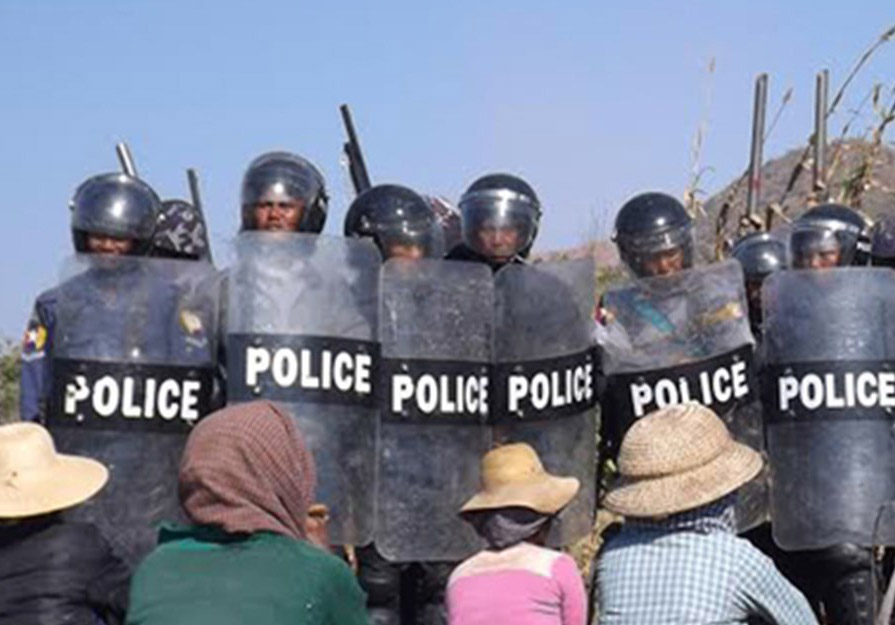
May 25, 2017 | News, Op-eds
An opinion editorial by Daniel Aguirre, ICJ Legal Adviser in Myanmar.
Burma’s 2016 Investment Law and the implementing Investment Rules issued in April 2017 create space for the government and civil society to facilitate responsible investment and exclude investors that have track records of environmental destruction and human rights abuses.
This means that affected individuals and communities must now test Burma’s commitment to the rule of law.
There are new opportunities for civil society to use law to hold them accountable. In this regard, both international law and Burma’s constitution guarantee access to justice for rights abuses.
The Investment Rules instruct the Myanmar Investment Commission (MIC) to consider whether investors have demonstrated a commitment to responsible investment. In considering the good character and reputation of the investor, the MIC may study whether the investor or any associate with an interest in the investment broke the law in Burma or any other jurisdiction.
The rules explicitly mention environmental, labor, tax, anti-bribery and corruption or human rights law.
What this means is that if an investor is determined to have committed a crime, has violated environmental protection standards or was involved with human rights abuses, the MIC should not grant it a permit.
If such a company applies for an investment permit, civil society should bring its record to the attention of the MIC and advocate for the rejection of a permit.
Successive governments in Burma have focused on increased investment to develop the country and improve its people’s standard of living.
At the same time, human rights and environment proponents from civil society have opposed many investment projects, citing the impact on the environment and human rights of local communities.
They complain that land rights are not adequately protected, that environmental impact assessments are not implemented and that they lack access to justice for corporate human rights abuses.
There are challenges to using the law to protect human rights in Burma.
Disputes related to business activity are often considered sensitive political matters in which the courts are unable or unwilling to intervene.
They are reluctant to review crucial decisions of administrative bodies or to hold rights abusers accountable.
But community activists, human rights defenders and lawyers have increased opportunities to pressure the courts to apply the law and should do so.
Lawyers have an important role in protecting human rights by representing local communities.
Courts must become a venue to challenge administrative decisions that allow for irresponsible investment that does not comply with national law, and where appropriate, obtain remedies and reparations for victims of human rights violations.
The Investment Law and its rules, which govern both local and foreign investment except within special economic zones, provide legal guarantees for investors to access information and protections against expropriation including compensation and access to due process if changes in regulation affect their business.
Investors can also access long-term rights to use land.
Civil society should help to ensure that only responsible investors benefit from these protections.
According to the law, the MIC is the gatekeeper that issues permits and endorsements for many would-be national and international investments likely to cause a large impact on the environment and local community.
In order to ensure that the protective aspects of the law are effective, courts must have some power of review, at least to ensure that administrative bodies, such as the MIC, are acting reasonably and in accordance with the law, while respecting and protecting human rights.
If the MIC grants permits for companies that do not meet the requirements outlined in the Investment Rules, their decisions must be subject to review by the judiciary.
Burma’s courts have the authority to review administrative decisions, particularly through the application of constitutional writs.
Lawyers can use the writs of mandamus and certiorari to secure the performance of public duties and quash an illegal order already passed by public bodies such as the MIC.
This would help ensure the MIC uses its mandate to prevent irresponsible investment.
Likewise, investors that fail to respect human rights or unlawfully cause damage to the environment must be held accountable; but there are few options to do so in Burma.
Criminal prosecutions against companies, actions imposing administrative sanctions, and civil suits face a variety of procedural hurdles, particularly if involving joint ventures with state run enterprises.
For example, a negligence civil suit brought by villagers against the Heinda tin mine in Dawei District was unsuccessful because the 1909 Limitations Act demands complaints to be brought within one year of damage.
Section 80 of the Civil Procedure Code requires prior notice and the names of plaintiffs to be given to the government two months before filing a suit against the government and allows small procedural defects to preclude a claim.
Lawyers are sometimes unfamiliar with these procedures and communities are reluctant to put their names to such cases fearing reprisals.
Clearly there are significant challenges to ensuring that investment in Burma does not adversely affect human rights.
To overcome these, civil society and lawyers must engage the administration—the MIC—to ensure only responsible investments is permitted and start to use the judiciary to review its actions.
Likewise, cases must continue to be taken against investors that abuse human rights and harm the environment.
Powerful investors must be constrained by the confines of the law, including human rights law.
Unless civil society and lawyers can use the legal framework to address these concerns, Burma’s judicial system is unlikely to develop; lawyers will not gain valuable experience and the public will remain distrustful.
The process is long and arduous but necessary to protect human rights and the environment from irresponsible investment.







